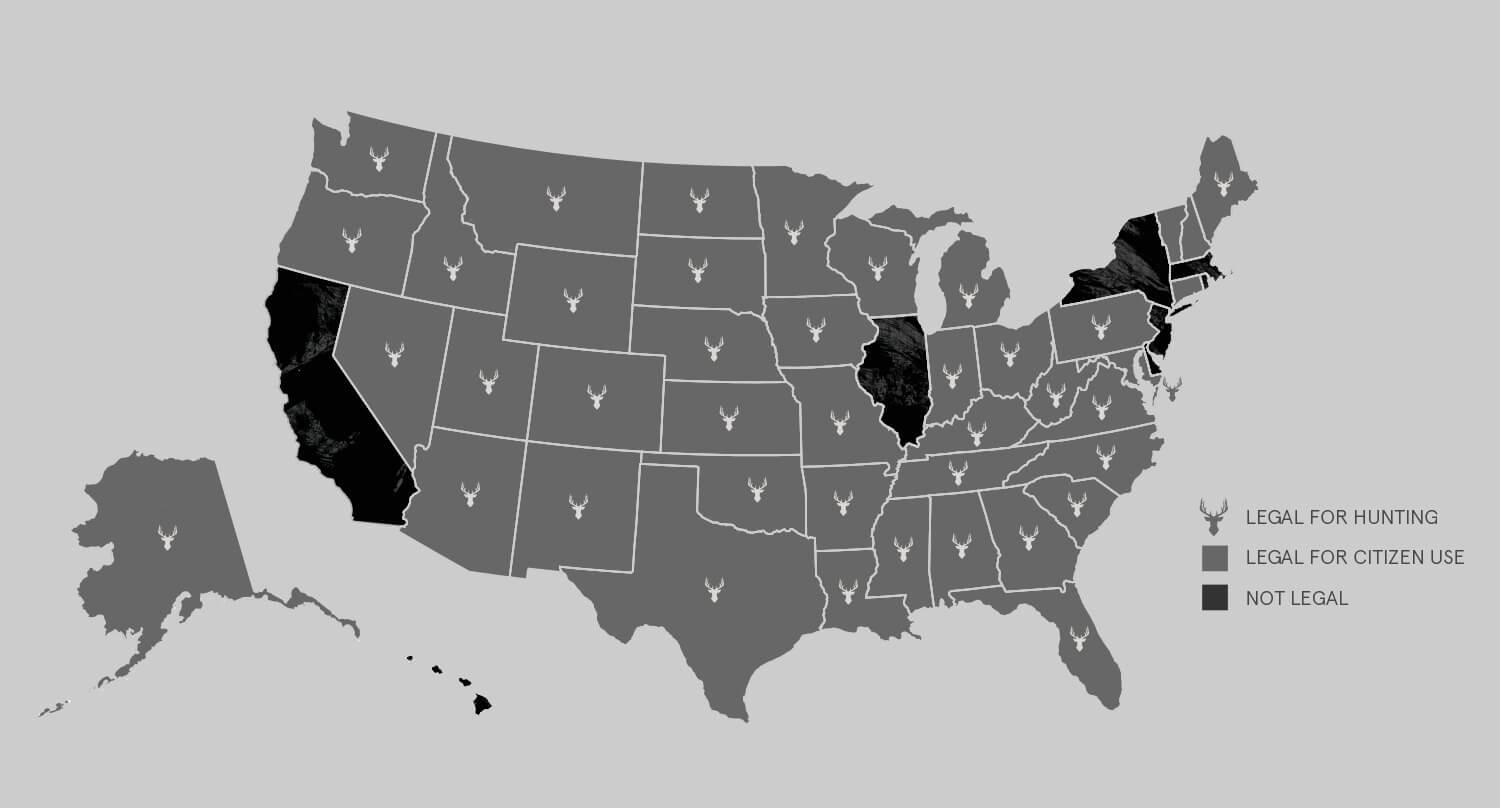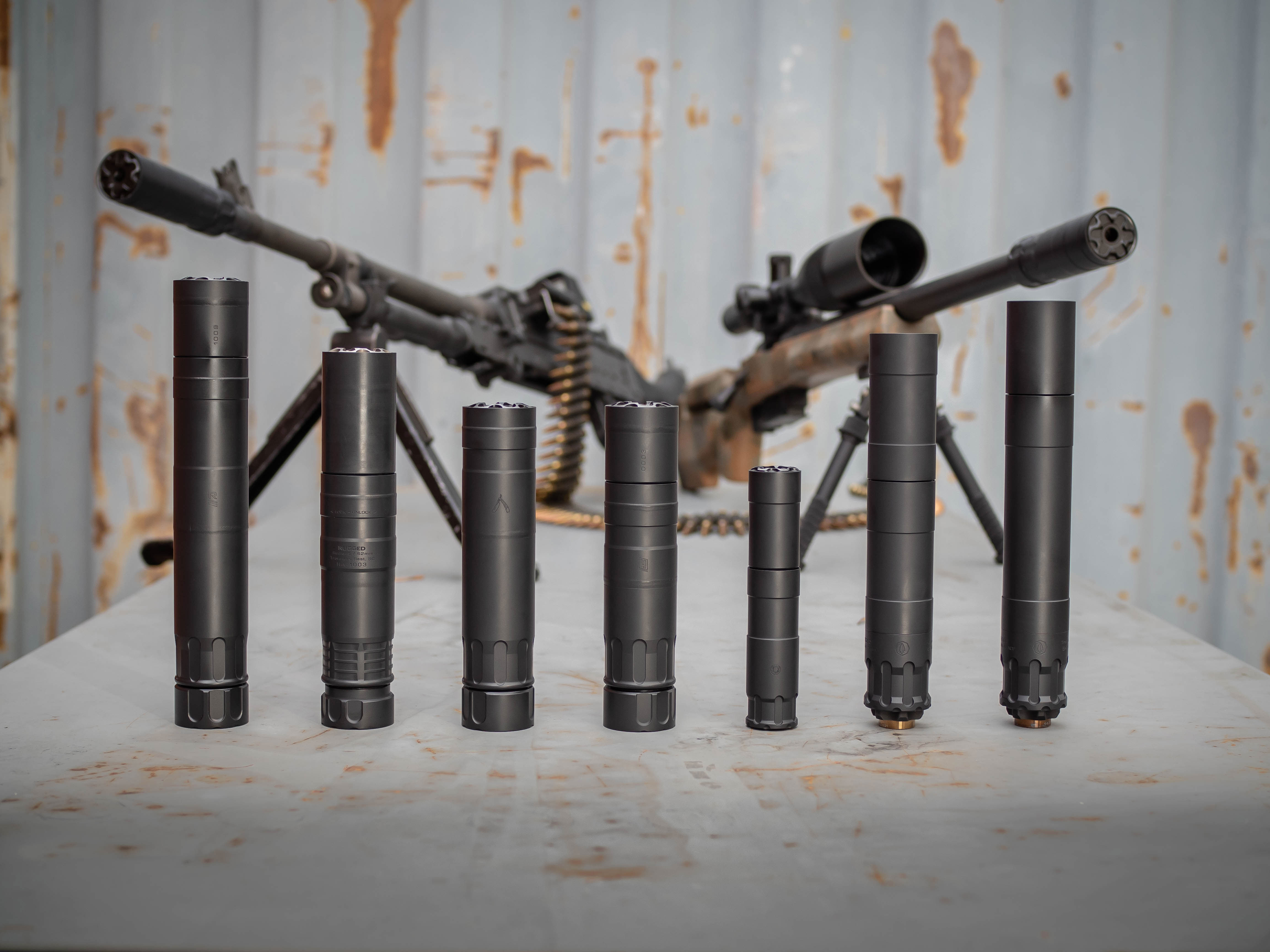Are Suppressors Legal In Colorado: A Comprehensive Guide To Understanding Firearm Suppressors
Firearm suppressors have become a topic of increasing interest among gun enthusiasts in Colorado, but many still wonder: Are suppressors legal in Colorado? The answer is yes, but with specific regulations and requirements that must be followed. Understanding these laws is crucial for anyone considering purchasing or using a firearm suppressor in the state. This article will delve into the legal framework surrounding suppressors in Colorado, providing you with all the necessary information to make informed decisions.
As firearm technology continues to evolve, suppressors are increasingly being viewed not just as accessories but as tools that enhance safety and improve shooting experiences. In Colorado, the legality of suppressors is governed by both federal and state laws, making it essential for gun owners to familiarize themselves with the rules.
This guide aims to provide clarity on the legal status of suppressors in Colorado, the process of acquiring them, and the benefits they offer. Whether you're a seasoned gun owner or new to the world of firearms, this article will equip you with the knowledge you need to navigate the suppressor landscape effectively.
Read also:Misa Campo Net Worth
Understanding Firearm Suppressors
Before diving into the legality of suppressors in Colorado, it's important to understand what suppressors are and how they function. Suppressors, also known as silencers, are devices attached to firearms to reduce the noise and muzzle flash produced when firing. Despite their portrayal in movies, suppressors do not completely silence a firearm but significantly reduce the sound level, making shooting safer and more enjoyable.
How Suppressors Work
Suppressors work by trapping the gases released when a bullet is fired, allowing them to expand and cool before being released into the atmosphere. This process reduces the noise level, typically bringing it down to around 130-140 decibels, which is still loud but much safer for hearing. Below are the primary components of a suppressor:
- Baffle Stack: A series of metal discs that slow down and redirect gases.
- Baffle Spacers: Components that separate the baffles and maintain their alignment.
- End Caps: The front and rear caps that seal the suppressor and attach it to the firearm.
Are Suppressors Legal in Colorado?
Yes, suppressors are legal in Colorado, but they are regulated under both federal and state laws. The Gun Control Act of 1968 and the National Firearms Act (NFA) of 1934 govern the possession and use of suppressors at the federal level, while Colorado has its own set of regulations that align with federal standards.
State Regulations in Colorado
Colorado law permits the possession and use of suppressors, provided all federal requirements are met. This includes obtaining the necessary tax stamp from the Bureau of Alcohol, Tobacco, Firearms, and Explosives (ATF) and paying the associated $200 fee. Additionally, suppressors can only be used for lawful purposes, such as hunting or target shooting.
Benefits of Using Suppressors
Suppressors offer numerous benefits that extend beyond reducing noise. Here are some of the key advantages:
- Hearing Protection: Suppressors significantly reduce the risk of hearing damage for both the shooter and bystanders.
- Improved Accuracy: By minimizing recoil and muzzle rise, suppressors help shooters maintain better control and accuracy.
- Enhanced Safety: Lower noise levels reduce the likelihood of startling wildlife or disturbing nearby residents during hunting.
The Legal Process of Acquiring Suppressors in Colorado
Obtaining a suppressor in Colorado requires following a strict legal process. Here’s a step-by-step guide:
Read also:Lonzo Balls Mama The Untold Story Youve Been Waiting For
Step 1: Purchase a Suppressor
Begin by purchasing a suppressor from a licensed dealer. Ensure the dealer is aware of the legal requirements and can guide you through the process.
Step 2: Fill Out ATF Form 4
Complete ATF Form 4, which is the application for tax-paid transfer and registration of a firearm. This form requires detailed information about the suppressor and the applicant.
Step 3: Pay the $200 Tax Stamp Fee
Submit the $200 fee to the ATF, which is non-refundable and must be paid upfront. This fee covers the cost of processing your application.
Step 4: Background Check
Undergo a thorough background check to ensure you are eligible to own a suppressor. This includes fingerprinting and submission of a photograph.
Step 5: Wait for Approval
Once your application is submitted, it can take several months for the ATF to process and approve it. During this time, you must wait patiently for the tax stamp to be issued.
Common Misconceptions About Suppressors
There are several misconceptions surrounding suppressors, especially regarding their legality and functionality. Here are a few common myths:
- Myth 1: Suppressors are illegal in the United States. (Fact: Suppressors are legal in most states, including Colorado, with proper registration.)
- Myth 2: Suppressors completely silence firearms. (Fact: Suppressors reduce noise but do not eliminate it entirely.)
- Myth 3: Suppressors are only used for illegal activities. (Fact: Suppressors are widely used for recreational shooting, hunting, and noise reduction.)
Suppressors and Hunting in Colorado
In Colorado, suppressors are increasingly being used for hunting purposes. They offer several advantages for hunters, including:
- Reducing noise pollution in wildlife areas.
- Minimizing the disturbance to surrounding communities.
- Enhancing the hunting experience by improving accuracy and control.
However, hunters must ensure they comply with all state and federal regulations regarding the use of suppressors during hunting seasons.
State-by-State Comparison of Suppressor Laws
While suppressors are legal in Colorado, laws vary significantly across the United States. Below is a brief comparison of suppressor laws in neighboring states:
- Wyoming: Suppressors are legal with proper registration.
- New Mexico: Suppressors are legal with proper registration.
- Utah: Suppressors are legal with proper registration.
- Nebraska: Suppressors are legal with proper registration.
This comparison highlights the importance of understanding local regulations when traveling with suppressors across state lines.
Legal Challenges and Controversies
Despite their benefits, suppressors remain a controversial topic in some circles. Critics argue that they could be used to mask illegal activities, while proponents emphasize their role in enhancing safety and recreational enjoyment. Understanding these debates is crucial for anyone involved in the suppressor community.
Addressing Concerns
To address concerns, many states, including Colorado, have implemented strict regulations and background checks to ensure suppressors are used responsibly. Education and awareness campaigns also play a vital role in dispelling myths and promoting responsible ownership.
Future of Suppressor Legislation
The future of suppressor legislation in Colorado and across the United States remains uncertain. Advocacy groups continue to push for reforms that would simplify the acquisition process and reduce the $200 tax stamp fee. However, opposition from certain factions may hinder progress.
Staying informed about legislative developments is essential for suppressor owners and enthusiasts. Regularly checking updates from reliable sources, such as the ATF and local government websites, can help you stay ahead of any changes.
Conclusion
Suppressors are indeed legal in Colorado, provided all federal and state regulations are followed. Understanding the legal process, benefits, and responsibilities associated with suppressor ownership is crucial for anyone considering acquiring one. By adhering to the guidelines outlined in this article, you can enjoy the advantages of suppressors while ensuring compliance with the law.
We encourage you to share this article with fellow gun enthusiasts and leave your thoughts in the comments below. For more information on firearm laws and accessories, explore our other articles on the website. Stay informed, stay safe, and enjoy the shooting sports responsibly!
Table of Contents
- Understanding Firearm Suppressors
- Are Suppressors Legal in Colorado?
- Benefits of Using Suppressors
- The Legal Process of Acquiring Suppressors in Colorado
- Common Misconceptions About Suppressors
- Suppressors and Hunting in Colorado
- State-by-State Comparison of Suppressor Laws
- Legal Challenges and Controversies
- Future of Suppressor Legislation
- Conclusion


